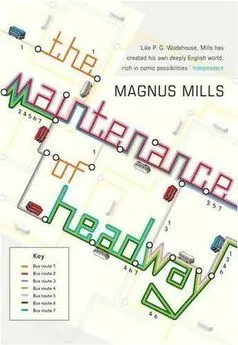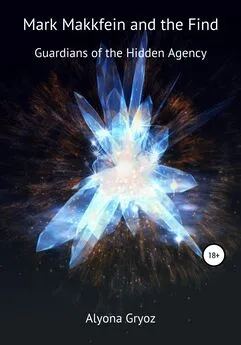Mark Mills - The Information Officer
- Название:The Information Officer
- Автор:
- Жанр:
- Издательство:неизвестно
- Год:неизвестен
- ISBN:нет данных
- Рейтинг:
- Избранное:Добавить в избранное
-
Отзывы:
-
Ваша оценка:
Mark Mills - The Information Officer краткое содержание
The Information Officer - читать онлайн бесплатно ознакомительный отрывок
Интервал:
Закладка:
Hugh peered down at her. “That, my dear, is because your Trevor does next to nothing for most of the time. Take it from me as his commanding officer.”
“Somehow, Hugh, I can’t think of you as a commanding officer,” Mitzi chimed, a playful glint in her eye. “A genial one, maybe, and slightly inept, but not a commanding one.”
Margaret’s hand shot to her mouth to stifle a laugh, which drew an affronted scowl from Hugh.
“Bang goes Trevor’s promotion,” said Max, to more laughter.
A little while later the ladies left together for the far end of the garden. Max fought to ignore the lazy sway of Mitzi’s slender hips beneath her cotton print dress.
“Entre nous,” said Hugh, considerably less abashed about admiring the view, “all the subs will be gone for good within a week or so.”
“Really?”
“Well, you’ve seen the pasting they’ve been taking down at Lazaretto Creek. And since Wanklyn came a cropper …”
The loss of the Upholder a couple of weeks back had rocked the whole garrison, right down to the man on the street. Subs had been lost before, subs driven by good men known to all, men who had once lit up the bar at the Union Club and whose bones were now resting somewhere on the seabed. “Wankers” Wanklyn was different, though. A tall, soft-spoken Scotsman with a biblical beard, he’d been modest in the way that only the truly great can afford to be. With well over one hundred thousand tons of enemy shipping under his belt and a Victoria Cross on his chest, he’d exuded a quiet invincibility that others had fed off, had drawn strength from. Not one of his peers had begrudged him his star status because he’d never once played to it; he’d just got on with the job. And now he was gone, sent to the bottom, a mere human being after all.
As the information officer, Max had been the first to learn of the Upholder’s fate. The announcement had been buried away in the transcript of an Italian broadcast—a brief mention of a nameless submarine destroyed in an engagement off Tripoli. Max had made some discreet inquiries, enough to narrow the field to the Upholder , and then he had sat on the news for a couple of days.
Yes, he had wanted Wanklyn to prove him wrong, he had wanted to see the Maltese packing the bastions again, cheering the Upholder home, straining to see if there were any new chevrons stitched to the Jolly Roger she was flying. But he had known in his bones that it wasn’t going to happen. He had known that what he needed was a couple of days to figure out how to play it, how to soften the blow for his readers and listeners.
But that was then, and this was now, and while he understood that pulling the subs off the island might be the judicious thing to do, he wasn’t thinking about his job and how he was going to break the news on the island. He was thinking about Mitzi. If the subs were really leaving, then she would be too; posted elsewhere with her husband. Where would they end up? Alexandria, probably. He wrestled with the notion—separated from Mitzi by nigh on a thousand miles of water—but it was too big and unwieldy to get a grip on.
Hugh misconstrued his silence as professionalism. “Mum’s the word, but I thought I should tip you the wink.”
“Thanks, Hugh. I appreciate it.”
“You’ll find a way to present it in a positive light; you always do.” He rested a hand on Max’s shoulder. “Now go and join the other renegades in the crow’s nest. Freddie and Elliott are already up there. No Ralph, though—he called earlier to say he can’t get away.”
Max did as he was told, eager for the distraction of his two friends, the chance to throw a blanket over his confused feelings and put Mitzi out of his mind. Villa Marija had been occupied by a naval officer before the war, and its large flat roof, still referred to as the crow’s nest, was where the younger crowd generally gathered to flap and caw. Anything under the age of thirty was deemed to be young, and you were never quite sure what you were going to find when you stepped from the stairwell into the glare.
There was usually a pleasing smattering of adolescent daughters in colorful home-stitched frocks, still coming to terms with their new breasts, which they wore with a kind of awkward pride. Circling them, inevitably, would be the younger pilots, barely more than boys but their speech already peppered with RAF slang. They were always taking a view on things—a good view, a dim view, an outside view, a ropy view—or accusing one another of “shooting a line.” Enemy bombers were “big jobs,” enemy fighters “little jobs.” The cockpit was their “office,” and they never landed, they “pancaked.” The thing they feared most in a flap was being bounced by a gaggle of little jobs from up-sun.
Sure enough, the pilots were there, a bevy of slender young things with flushed complexions hanging on their every word. Others hovered nearby, one ear on the tales of doughty deeds. The airmen were the only ones in the garrison capable of carrying the battle to the enemy, and their stories offered a tonic against the daily round of passive resistance.
Freddie and Elliott were at the far end of the roof terrace. Freddie was making good use of a large pink gin, his face a picture of evident distaste at whatever it was that the tall American was telling him. Max pushed his way through the throng toward his friends.
“Gentlemen.”
“Ah, Maximillian,” said Elliott. “Just in time.”
“For what?”
“A little conundrum I was posing to Freddie here.”
“Is that what you call it?” Freddie grimaced.
“Well, it sure as hell is for their commanding officers.”
“Sounds intriguing,” said Max.
“It rapidly becomes disgusting,” Freddie replied.
Elliott laughed. “I hadn’t figured you for an old prude.”
“It’s got nothing to do with prudishness,” Freddie said, bristling. “It’s a question of … well, morality.”
“Ah, morality …”
“To say nothing of the law.”
“Ah, the law,” Elliott parroted, with even more skepticism.
“You trained as a lawyer. You must have some respect for the law.”
“Sure I do. You don’t want to screw with an institution that can send an innocent man to the electric chair.” Elliott turned to Max before Freddie’s frustration could shape itself into a response. “You want to hear it?”
“Fire away.”
“It’s very simple. You’re a wing commander taking a break from it all up at the pilots’ rest camp on Saint Paul’s Bay. You know it? Sure you do, from when Ralph was wounded.”
“I do.”
“Then you can picture it. It’s late and, okay, you’re a bit tight. But, hey, who wouldn’t be, after all you’ve been through these past months? Anyway, you’re feeling good and you’re looking for your room. And you find your room. Only it isn’t your room. It’s someone else’s room. And that someone else is in what you think is your bed with someone else.”
“You’re losing me.”
“Stay lost,” was Freddie’s advice.
“There are two guys in the bed, okay? And they’re, well, I don’t know how to put it….”
“I think I get your meaning.”
“Of course you do. You went to an English boarding school.”
“As did you,” said Freddie, “in case you’d forgotten.”
“And a sorry dump it was too. Anyway, they’re good men, officers, both of them. One’s in your squadron. The other’s not, but you know him. And he’s a first-class pilot, reliable, what you Brits would call a ‘press-on’ type.” Elliott paused. “What do you do?”
“What do I do?”
“What do you do?”
“Well, I order them to desist at once.”
Elliott laughed. “I think you can assume they desisted the moment you opened the goddamn door. Do you report them?”
“Report them?”
“To the air officer commanding. It’s not a question of morality, or the law, or even of taste. I mean, I’ve never felt the need to place my penis in another man’s dung—”
“Oh Christ,” Freddie blurted into his gin.
“But it doesn’t stop me from being able to make a judgment on the situation.”
Max thought on it. “I don’t report them.”
“Why not?”
“Morale. A squadron’s like a family.”
“You’re ready to lie to your family?”
“No. Yes. I suppose. If the situation calls for it.”
“Go on,” said Elliott. “What else, aside from morale?”
“Well, the two individuals in question, of course. They’d be packed off home, and everyone would know why. It would leak out.”
“An unfortunate turn of phrase, under the circumstances.”
“Oh, for God’s sake, Elliott!” exclaimed Freddie.
Elliott ignored him. “Interesting,” he said. “Three differing views. Freddie said he’d report them, you’re a no, and I’m for reporting them.”
“I thought you said three.”
“There’s a difference between me and Freddie. He’s a moralist. Me, I’m a pragmatist. I’d report them, but only cos if I didn’t and word got out that I hadn’t, then it’d be my head on the block.”
“So what does that make me?” asked Max.
“That makes you a sentimentalist,” was the American’s surefooted response.
“Oh, come on—”
“Relax. There are worse things to be than a sentimentalist.”
“Yeah,” said Freddie, “you should try being a moralist.”
It was good to hear Freddie crack a joke. He had seemed strangely withdrawn, somehow not himself. Max was in a position to judge. They had been firm friends, the best of friends, for almost two years now, and in that time he’d learned to read Freddie’s rare down moods: the faint clouding in the cobalt-blue eyes, the slight tightening of the impish grin. He still looked that way now, even after the laughter had died away and the conversation had turned to Ralph, the missing member of their gang. Ralph was a pilot with 249 Squadron at Ta’ Qali, a burly and garrulous character who had taken the squadron’s motto to heart one too many times: Pugnis et calcibus— “With Fists and Heels.” Elliott had come late to the party, materializing as if from nowhere around Christmas, hot on the heels of Pearl Harbor and America’s entry into the war, but in four short months he’d stitched himself into the fabric of their little brotherhood lorded over by Hugh. He’d even got them all playing poker.
Elliott had a natural ear for scandal and was recounting a lurid story he’d heard from Ralph involving a chief petty officer’s wife and a Maltese gardener when the tinkle of Rosamund’s bell rang around the rooftop.
“Most of you know what this means,” she announced from the top of the steps. “Turn your minds and your talk to higher matters, to life and to art and, I don’t know, past loves and future plans.”
“But I was just hitting my stride.”
“My dear Elliott, I doubt it was anything more than mere gossip.”
“True, but of the most salacious kind.”
“Then be sure to search me out before you leave.”
This drew a few chuckles from the assembled company. These died suddenly as the plaintive wail of the air-raid siren broke the air.
They had all been expecting it. Breakfast, lunch, and cocktail hour—you could almost set your wristwatch by the Germans and their Teutonic timekeeping.
They turned as one toward Valetta. From the high ground of Sliema, Marsamxett Harbour was spread out beneath them like a map, its lazy arc broken by the panhandle causeway connecting Manoel Island, with its fort and submarine base, to the mainland. In the background, Valetta reared majestically from the water, standing proud on her long peninsula, thrusting toward the open sea. Beyond the city, out of sight, lay the ancient towns and deepwater creeks of Grand Harbour, home to the naval dockyards, or what remained of them.
Читать дальшеИнтервал:
Закладка:




![Джеймс Купер - Пионеры, или У истоков Саскуиханны [The Pioneers, or The sources of the Susquehannah]](/books/1066142/dzhejms-kuper-pionery-ili-u-istokov-saskuihanny-t.webp)




